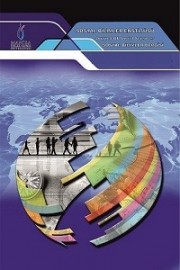TÜRKİYE’DE 2002-2007 DÖNEMİNDE UYGULANAN PARA POLİTİKASININ AMPİRİK BİR ANALİZİ: REAKSİYON FONKSİYONUNUN TAHMİNİ
AN EMPIRICAL ANALYSIS OF THE MONETARY POLICY OF THE 2002-2007 PERIOD IN TURKEY: ESTIMATION OF REACTION FUNCTION
Author(s): Orhan KaracaSubject(s): National Economy, Governance, Economic history, Economic policy, Economic development
Published by: Celal Bayar Üniversitesi Sosyal Bilimler Enstitüsü
Keywords: Monetary Policy; Reaction Function; Central Bank;
Summary/Abstract: The monetary policy of the 2002-2007 period in Turkey is empirically analysed in this study. The monetary policy reaction function for January 2002-December 2007 period is estimated in order to do this. With the usage of reaction function, the way how monetary policy reacted against inflation, output gap and exchange rate in this period is measured. According to the findings reached at the end of these analysis, monetary policy sharply reacts to the expected inflation’s deviating from the target. The findings of this study showed that monetary policy does not react to the output gap. Analysis done by using four different currency variables showed that during the referred period of the study, monetary policy does not react to the exchange rate as well.
Journal: Celal Bayar Üniversitesi Sosyal Bilimler Dergisi
- Issue Year: 17/2019
- Issue No: 02
- Page Range: 383-401
- Page Count: 19
- Language: Turkish

